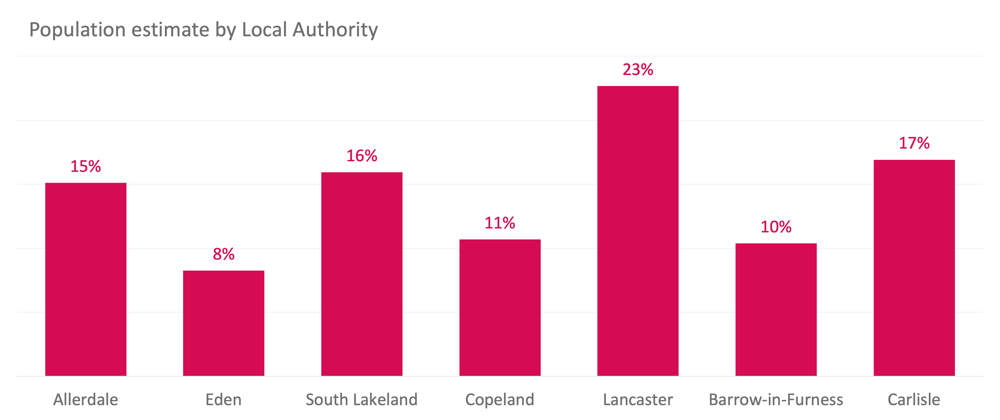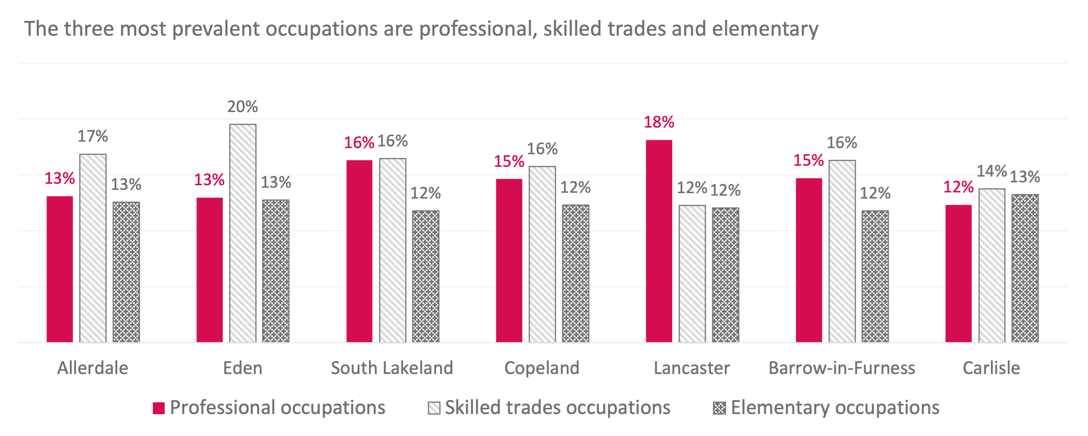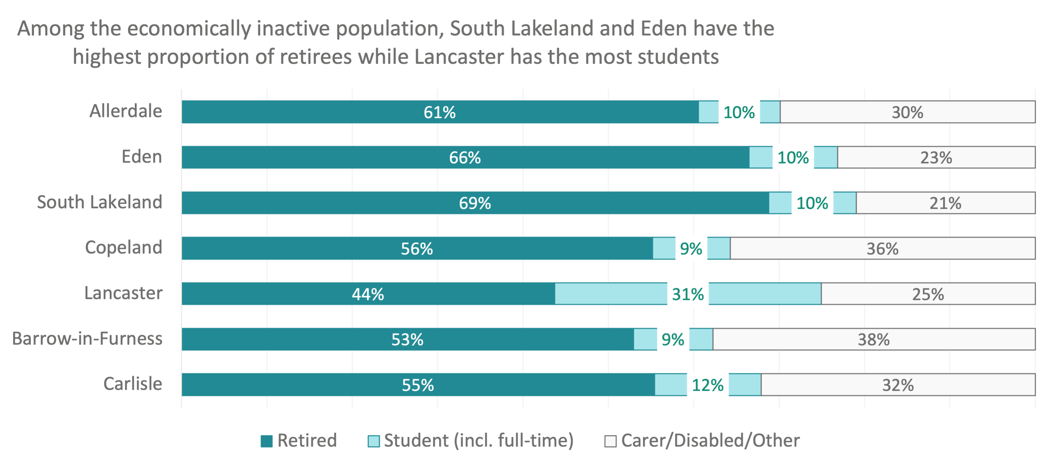Contents
Attitudes and Engagement
This data considers how people in the North West of England, particularly Cumbria and Lancaster, have responded to pandemic life, both generally and with regards to arts and culture consumption.
Profiles and Demographics
This information is gathered from the 4 years preceding Covid and is baseline population profiling that will not have changed significantly during the pandemic. This is, therefore, accurate demographic data to consult in your recovery planning.
Attitudes and Engagement
Managing and Moving Forwards from the Pandemic
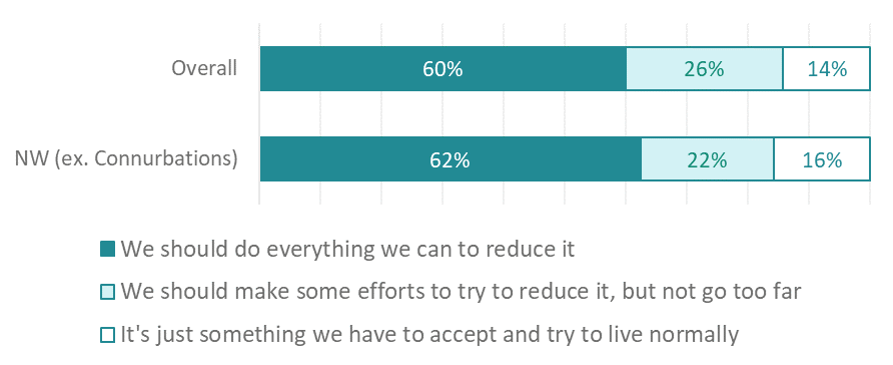
- 62% of people surveyed in the North West think that we should still be doing everything that we can to reduce the spread of Covid-19.
- A further 22% think that we should be making moderate but not excessive attempts to control the spread.
- While 16% think it's time to accept the virus's continued spread and try to resume living normally.
- These figures are inline with attitudes expressed by respondents across the UK as a whole.
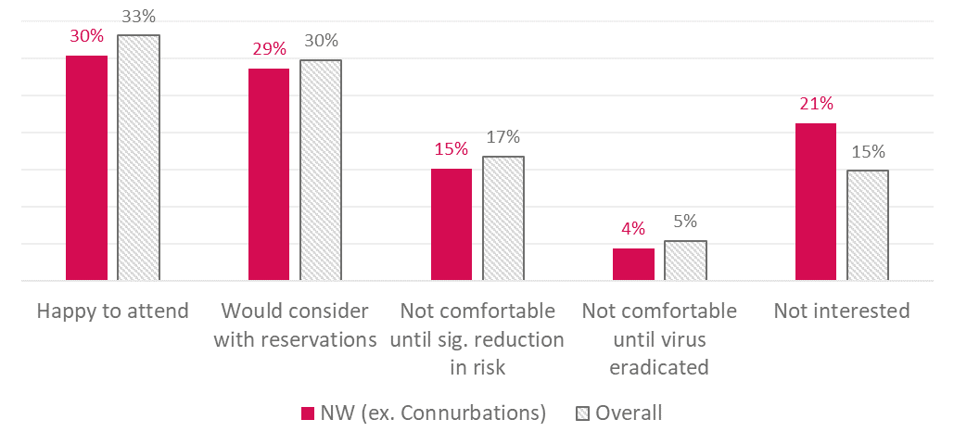
- Audiences in the North West are slightly more reticent about returning to arts and cultural events than across the UK in general.
- North West respondents are also more likely to say that they are not interested in arts, culture and heritage anyway.
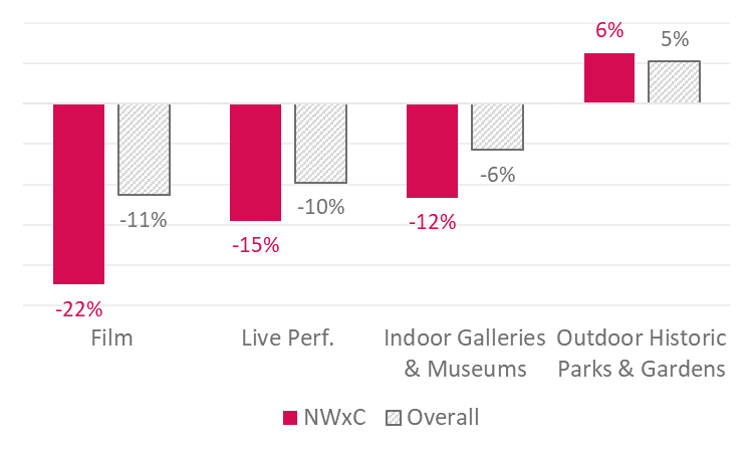
Future attendance: Net More - Less
Note: Figures are net % more-less, on a scale of 1 (more often) to 5 (less often), where 3 is ‘the same’ and 2 and 4 are half-weighted.
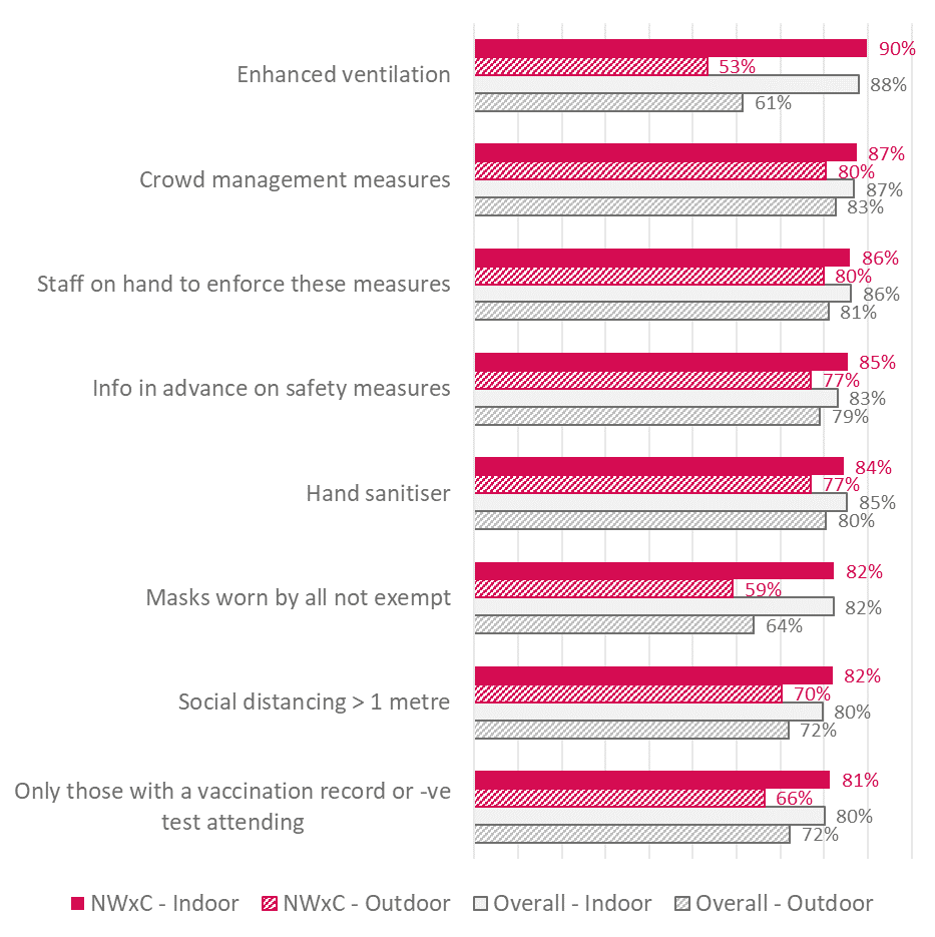
% rating the measure ‘very important’ or ‘important’ to feel comfortable.
Arts and Leisure Activities during Covid
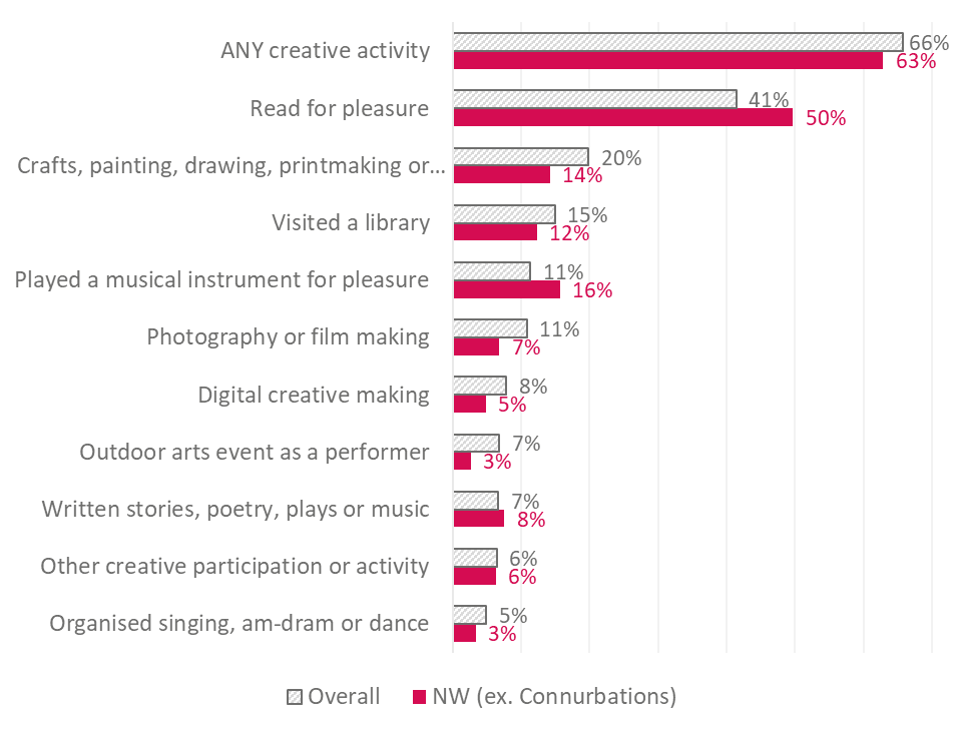
Profiles and Demographics
Sales Trends
Local Bookers
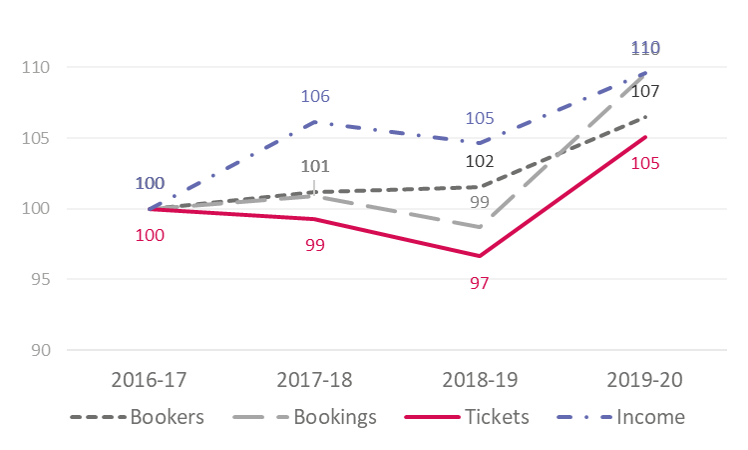
All measures rose, but income and bookings rose further than bookers or tickets – i.e. there were more transactions per booker, for smaller numbers of higher value tickets.
2019/20:
- Avg. income/ticket: £16.86, +4%
- Avg. tickets/booker: 5.9, -1%
- Avg. bookings/booker: 2.4, +3%
- Avg. tickets/booking: 2.5. -4%
Number of tickets per art form:
- Only Christmas Shows and General Entertainment increased
- Drops in Plays/Drama, Film & Music
Non-Local Bookers
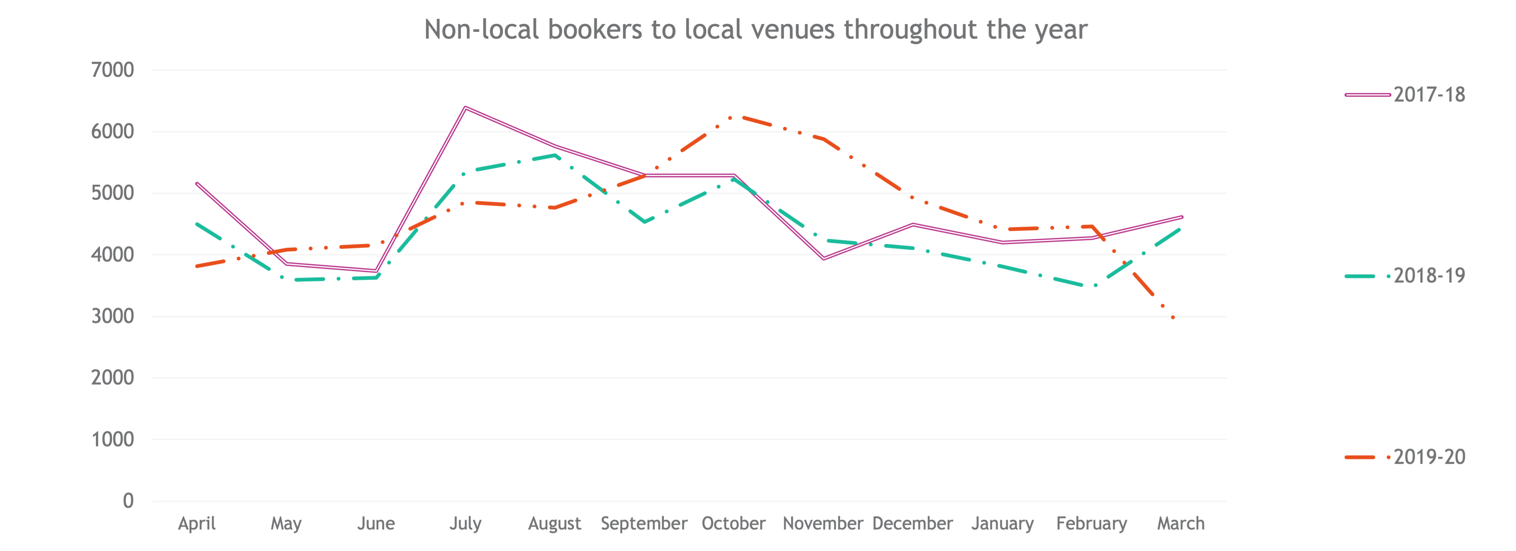
Audience Spectrum
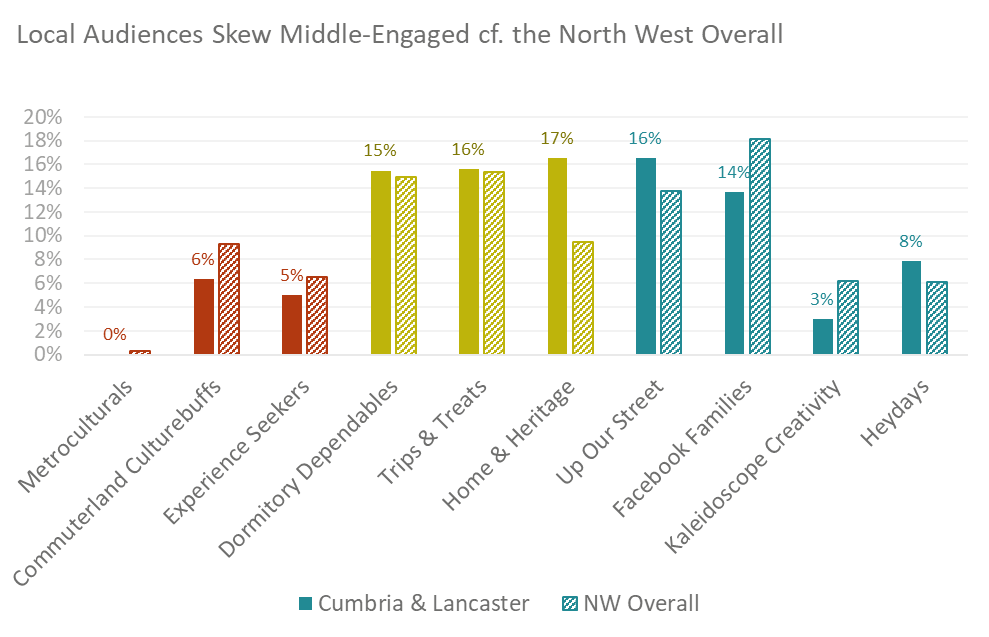
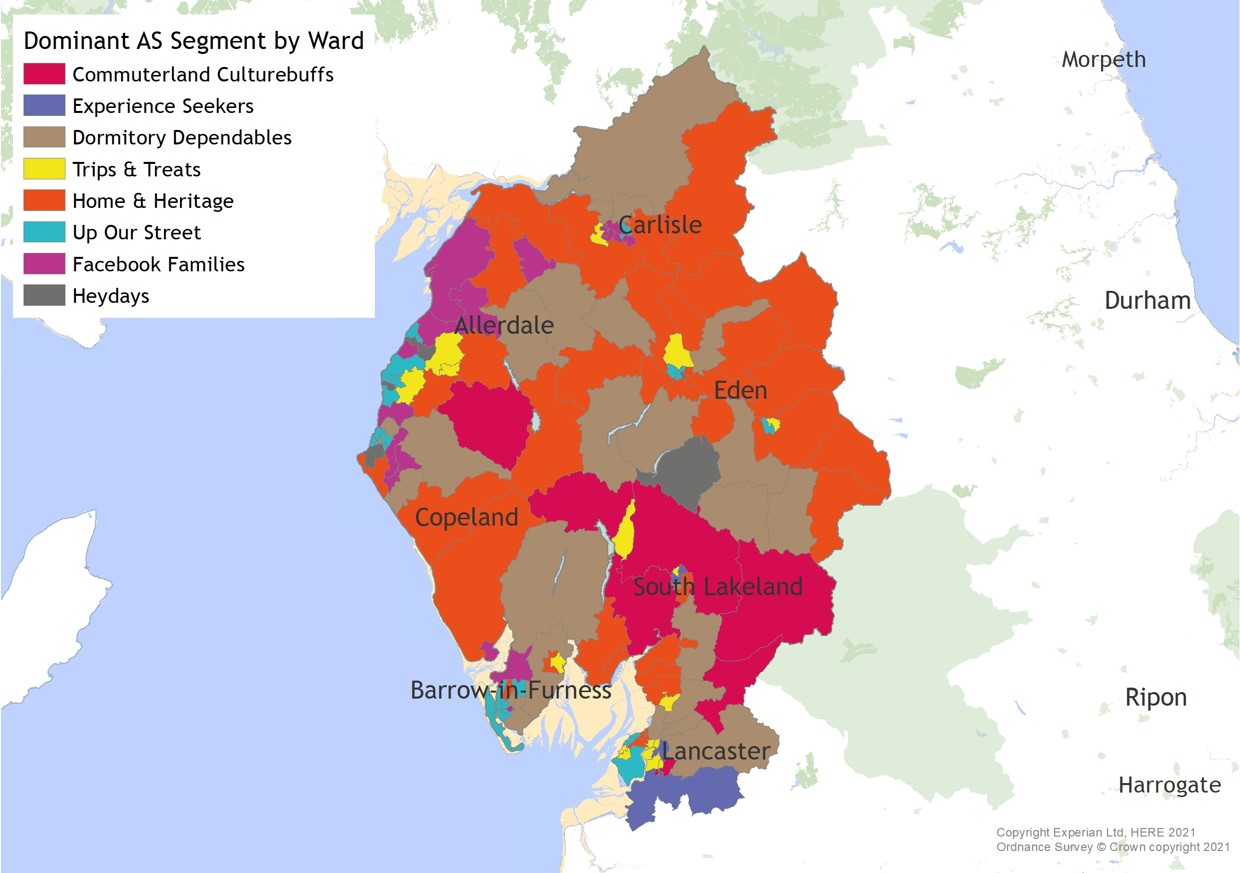
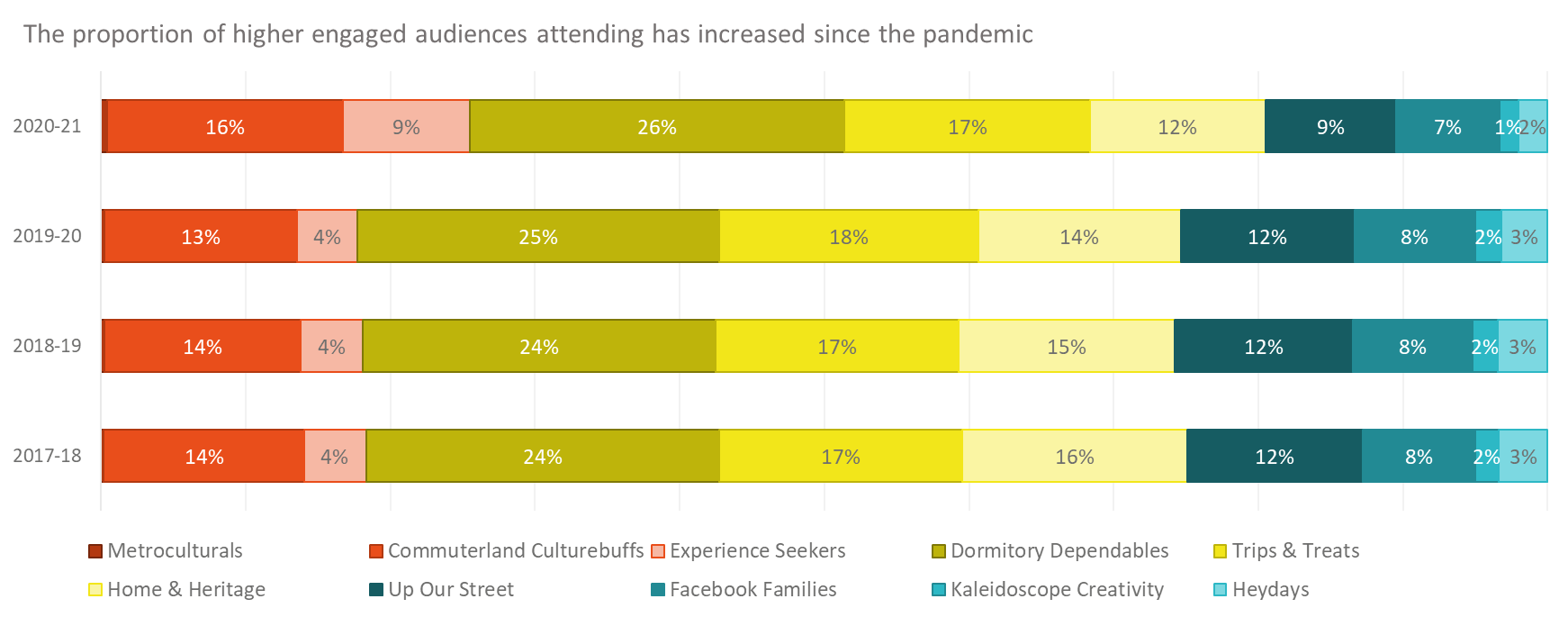
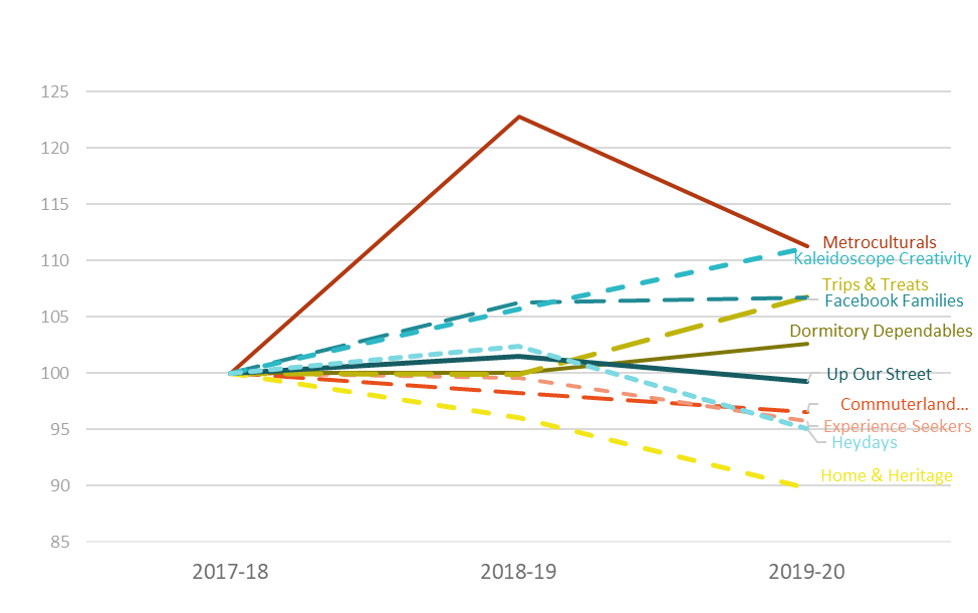
- Family and Urban audiences groups have increased.
- Older and Higher Engaged audiences have decreased.
Ward-by-ward Audiences Profiles
Allerdale
|
- Demographics: Least diverse with lowest proportion of ethnic minorities, most popular occupation is skilled trades (17%), a quarter have no qualifications (27%)
- Audience Spectrum: High: Up Our Street, Facebook Families, Home & Heritage; Low: Commuterland Culturebuffs, Experience Seekers.
- Arts Engagement (TGI): Lower attendance across artforms, with slightly higher attendance for Keswick, Boltons, Crummock, Dalton and Derwent Valley.
|
Eden
|
- Demographics: Least diverse with lowest proportion of ethnic minorities, most popular occupation is skilled trades (17%), a quarter have no qualifications (27%)
- Audience Spectrum: High: Up Our Street, Facebook Families, Home & Heritage; Low: Commuterland Culturebuffs, Experience Seekers.
- Arts Engagement (TGI): Lower attendance across artforms, with slightly higher attendance for Keswick, Boltons, Crummock, Dalton and Derwent Valley.
|
South Lakeland
|
- Demographics: Older, fewest families (33%), highest employment among economically active (94%) with highest proportion of mangers/senior positions and of skilled trader, highest proportion of economically inactive are retired (69%).
- Audience Spectrum: High: Home & Heritage, Domitory Dependables, Commuterland Culturebuffs; Low: Heydays Experience Seekers, Facebook Families.
- Arts Engagement (TGI): High attendance, particularly for art galleries, classical music and theatre. Attendance was particularly high for Bowness & Levens, Furness Peninsula, Kendal and Windermere
|
Copeland
|
- Demographics: Highest levels of full-time employment among economically active (58%) but low levels of self-employment, a quarter have no qualifications (27%), relatively high proportion of process, plant and machine operatives (11%)
- Audience Spectrum: High: Up Our Street, Facebook Families, Heydays; Low: Commuterland Culturebuffs, Experience Seekers.
- Arts Engagement (TGI): Lowest attendance of all regions across artforms, with slightly higher attendance for St Bees, and Bransty and Hillcrest (theatre and popular/rock concerts).
|
Lancaster
|
- Demographics: Highest levels of full-time employment among economically active (58%) but low levels of self-employment, a quarter have no qualifications (27%), relatively high proportion of process, plant and machine operatives (11%)
- Audience Spectrum: High: Up Our Street, Facebook Families, Heydays; Low: Commuterland Culturebuffs, Experience Seekers.
- Arts Engagement (TGI): Lowest attendance of all regions across artforms, with slightly higher attendance for St Bees, and Bransty and Hillcrest (theatre and popular/rock concerts).
|
Barrow-in-Furness
|
- Demographics: Highest unemployment among economically active (7%) and low levels of self-employed, skilled trades (16%) and professional occupations (15%) most prevalent, highest proportion of families (42%) and the region with the youngest families (16% with child under 5)
- Audience Spectrum: High: Up Our Street, Facebook Families; Low: Commuterland Culturebuffs, Kaleidoscope Creativity, Heydays.
- Arts Engagement (TGI): Lower attendance across all artforms, with slightly higher attendance for Newbarns and Roosecote (theatre and popular/rock concerts).
|
Carlisle
|
- Demographics: Skilled trades and elementary occupations are most prevalent (both 14%), highest proportion of process, plant and machine operatives (12%), 40% are families
- Audience Spectrum: High: Trips & Treats, Up Our Street, Facebook Families; Low: Commuterland Culturebuffs, Experience Seekers, Kaleidoscope Creativity.
- Arts Engagement (TGI): Lower attendance across all artforms, with slightly higher attendance for Dalston, Wetheral, Stanwix, Burgh and Great Corby and Geltsdale.
|
Professional Breakdown by Ward:
